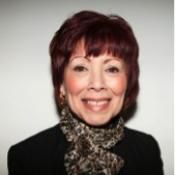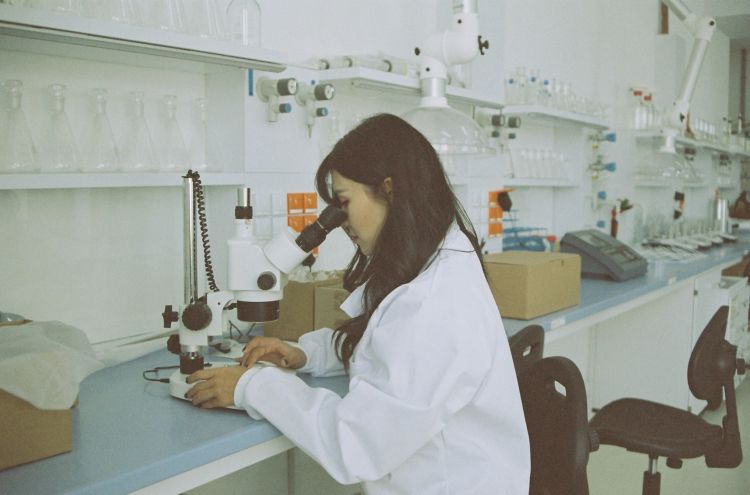Patient’s Corner: Living with Chronic Illness Vol. 2
By Dorothy Leone-Glasser
I met Mapillar Dahn and the MTS Sickle Cell Foundation, Inc. at our Rx in Reach GA Coalition Capitol Day. She was excited to participate in our event and had a table set to distribute Sickle Cell Awareness material and to engage visitors, attendees and legislators on the challenges of living with and caring for patients with this illness. She is guiding others to participate in understanding and conquering Sickle Cell Disease. I wanted you to know Mapillar and her journey as she continues her crusade to dispel the myths and ignorance surrounding the devasting sickle cell disease.
Mapillar Dahn founded MTS Sickle Cell Foundation, Inc., a non-profit organization, to bring awareness to sickle cell disease and provide support to families affected by Sickle Cell Disease (SCD). Since its inception in November of 2015, the foundation has implemented many initiatives to assist sickle cell families giving them a community of healing and hope. MTS Foundation has sponsored over 100 children attending week-long summer camp, organizing health fairs, helping families avoid eviction and disconnection of vital utilities while conducting outreach visits to hospitalized sickle cell patients. The MTS Foundation works to spread sickle cell awareness and support clinical trials reaching over 20 million people in the United States and Canada.
SCD is an incredibly complex genetic blood disorder that impacts 100,000 Americans and millions more around the world. Because it is a blood disease, it’s complications can be felt anywhere blood flows in the body. A person can go blind from it, have a stroke, have organ damage, experience excruciatingly painful episodes called crises, and even die from its complications. Sickle Cell is an invisible disease that many outside of the SCD community, simply do not understand. This misunderstanding and a general lack of education around SCD has caused many myths and misconceptions about the disease to fester and cause systemically toxic and stigmatizing beliefs.
Mapillar Dhan is personally inspired to fight for those affected by sickle cell because she is the mother of three (3) beautiful daughters who all battle Sickle Cell Disease. She knows firsthand what people don’t know about living with this challenging disease and caring for children who struggle with its symptoms daily. She is compelled to speak out loud and share a few points to keep in mind when engaging with SCD patients. She believes; the more you know, the more you can crush the barriers to care so patients can be assured they will receive the timely and appropriate treatment that they deserve.
Here are some of her ‘Tips”:
- RESPECT THE EXPERTISE OF THE PATIENT: More needs to be done to build communication, sensitivity and awareness with SCD patients. Patients are experts in their own disease. SCD patients are not seen as partners in their own care. If a patient says, “This drug doesn’t work for me, but that one does,” what the doctor hears is, “This person has a drug of choice”. What is true is the SCD patient has lived with their disease since birth and knows what works for them.
- SICK PEOPLE DO NOT ALWAYS LOOK SICK: Please do not tell a SCD patient that he or she does not look sick. It is incredibly offensive and very hurtful. This is a community that has real issues with being taken seriously, especially in the hospital setting. SCD patients all around this country are being made to feel like they are faking their pain by medical professionals. They are being told that they are drug seekers simply because you can’t see their pain. SCD impacts every aspect of a person’s life and is extremely debilitating. Even when you do not see the severity of their illness; that does not mean that they are not experiencing a great deal of pain or feel very sick.
- IT’S OK TO SAY YOU DON’T KNOW: I wish more medical professionals would say that they do not know about how to treat SCD patients instead of minimizing their pain, rushing their care, and prematurely sending them home, only for them to return to the hospital oftentimes in an even much critical condition than before. When it comes to treating SCD complications, time does matter
- THE DISEASE AFFECTS EVERYONE DIFFERENTLY:
My daughters are three sisters with the same mother and father all battling the same disease. They all have different symptoms and different experiences.
My oldest daughter, Tully, who is now 17, started to have severe bouts of pain, known as pain crises, when she was 6 months old. Until a year ago, she was having two to three crises a year, which means she was hospitalized for at least a week. About a year ago, after a blood transfusion, she developed antibodies to the blood group antigen, Jsb, which means she can only get transfusions from the 1-2% of donors who lack this antigen.
My other daughters have not had pain crises, but my middle daughter, Khadeejah, who is 15, had a stroke when she was 7 years old. Since then, she’s had monthly blood transfusions and 10 surgeries, including a major brain surgery.
My youngest daughter, Hajar, who is 11, struggles with the disease in her own way. She doesn’t have obvious symptoms or require regular blood transfusions, but she has cognitive challenges that are the result of “silent” mini-strokes associated with SCD.
“We have to look at individual patients and treat the disease more broadly. As a community, we know that not much is taught about sickle cell disease in medical and nursing schools. Until we can work to change that, a healthy dose of vulnerability, understanding, compassion, care, and empathy needs to be prescribed when treating people with SCD.”
To learn more about MTS Sickle Cell Foundation click here.

Founder & CEO,
MTS Sickle Cell Foundation

Executive Director, Advocates for Responsible Care
Co-Chair, Georgia Bio Patient Advocacy Alliance
The post Patient’s Corner: Living with Chronic Illness Vol. 2 appeared first on Georgia Bio.





